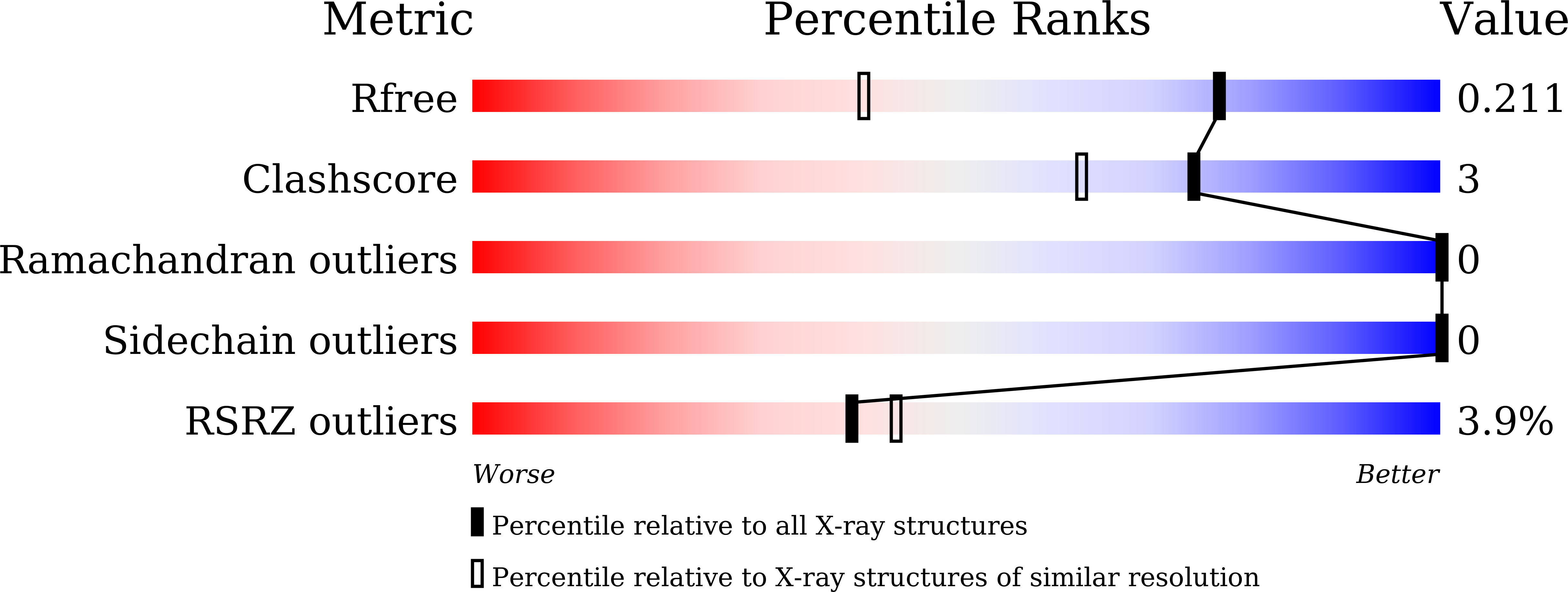
Deposition Date
2020-06-22
Release Date
2021-05-12
Last Version Date
2023-11-29
Entry Detail
PDB ID:
7CE4
Keywords:
Title:
Tankyrase2 catalytic domain in complex with K-476
Biological Source:
Source Organism(s):
Homo sapiens (Taxon ID: 9606)
Expression System(s):
Method Details:
Experimental Method:
Resolution:
1.50 Å
R-Value Free:
0.20
R-Value Work:
0.17
R-Value Observed:
0.17
Space Group:
P 41 21 2


